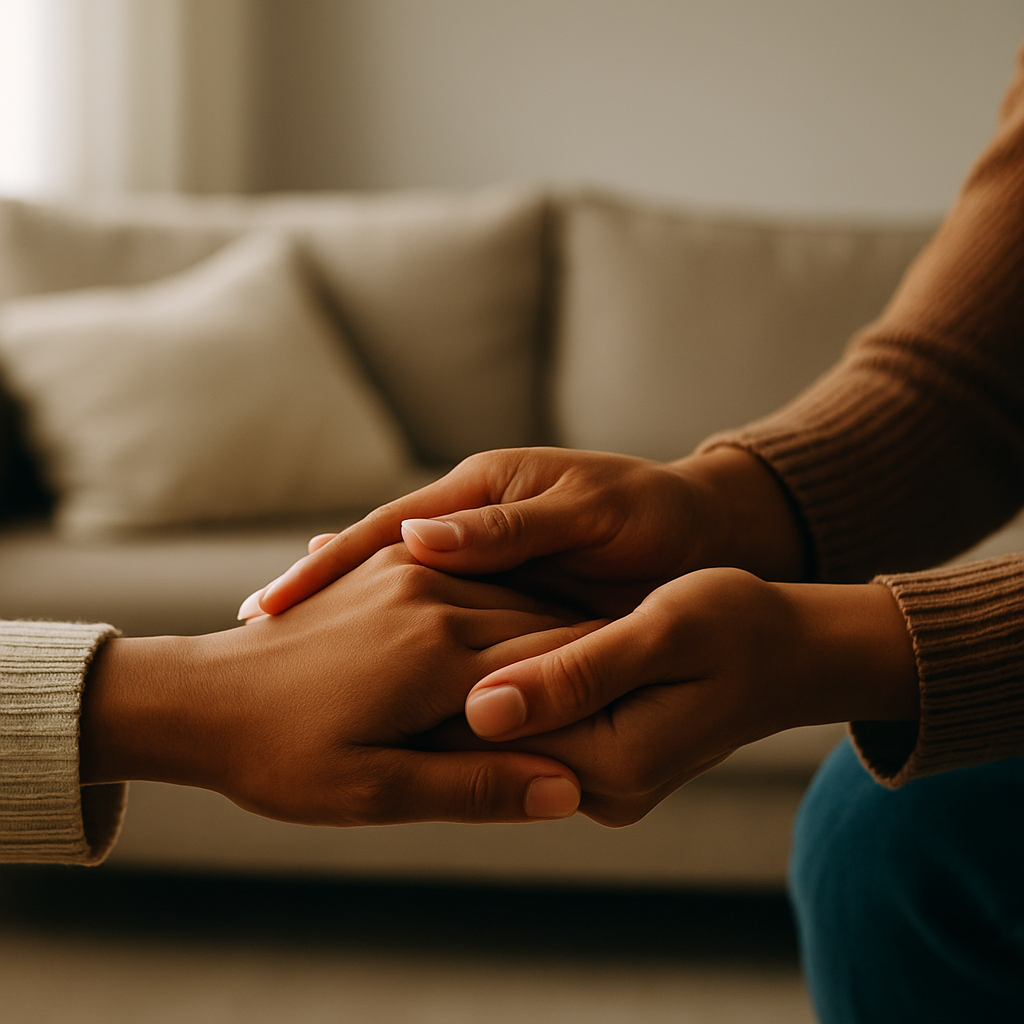Support for People Experiencing Abuse
If you’re reading this, you may be living with fear, control, or harm. You are not to blame and you are not alone. This page explains what abuse can look like, why leaving is so difficult, how to build a simple safety plan, and where to find safe support across the UK and Scotland.

1. Understanding Abuse
Abuse is about power and control. It can happen in relationships, families, or institutions. It may include:
- Physical abuse: hitting, pushing, restraining, or physical harm.
- Emotional/psychological abuse: insults, threats, humiliation, intimidation, gaslighting.
- Financial abuse: controlling money, denying access to finances, creating dependency.
- Coercive control: isolating you, monitoring calls/messages, controlling where you go and who you see.
- Sexual abuse: any non-consensual sexual contact or pressure.
Recognising abuse is the first step. It is not your fault.
2. Why It Feels So Hard to Leave
Feeling stuck is common. Fear, finances, social pressure, children, immigration status, disability, or hope that things will improve can all play a part. Abuse can also affect how your brain and body respond to threat — you may experience anxiety, depression, trauma responses, or shutdown. None of this means you are weak. These are common reactions to being controlled and harmed.
If leaving feels impossible right now, there are still steps you can take to increase safety and gather support.
3. Steps You Can Take (at your own pace)
- Talk to someone you trust — a friend, colleague, neighbour, or a helpline volunteer who understands abuse.
- Make a simple safety plan — know a safe place you can go; store important documents (photos/scans) somewhere safe; keep a small essentials bag ready if possible.
- Use technology safely — consider using a private device; clear browsing history; review location sharing and “find my” settings.
- Record incidents if safe — dates/times, photos of injuries, threatening messages. Only if doing so does not increase risk.

4. Support Services
If you are in immediate danger, call 999 (UK).
- National Domestic Abuse Helpline (0808 2000 247)
- Refuge — support for women and children.
- Men’s Advice Line — support for men experiencing abuse.
- Scottish Women’s Aid — services across Scotland.
- Safer.Scot — info and signposting in Scotland.
- NHS Inform Scotland — guidance & getting help.
- Childline (0800 1111) — for children and young people.
- Hourglass — support for older people.
- Shout — UK 24/7 text support (text SHOUT to 85258).
5. For Friends and Family
If you suspect someone is being abused:
- Listen and believe them. Avoid “why didn’t you…” questions.
- Do not pressure them to act before they’re ready. Safety planning takes time.
- Offer specific help: “Can I store copies of your documents?”, “I’m free to drive you on Tuesdays.”
- Share helplines and check in regularly.
Important Note
The information on this page is for general understanding and support. It is not a substitute for professional medical, psychological, or legal advice. If you feel unable to keep yourself safe or someone else is at risk, call 999 (UK) immediately. If you’re outside the UK, contact your local emergency number.
For non-emergency concerns, consider speaking with a qualified health professional or one of the support services listed on our site.
 Patch & Pot
Patch & Pot